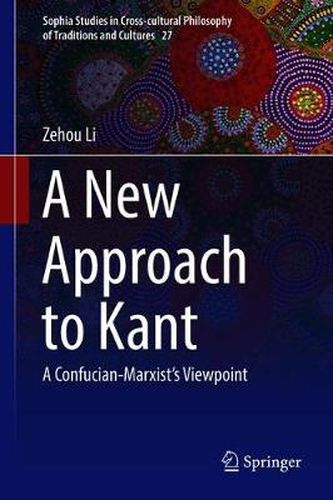Readings Newsletter
Become a Readings Member to make your shopping experience even easier.
Sign in or sign up for free!
You’re not far away from qualifying for FREE standard shipping within Australia
You’ve qualified for FREE standard shipping within Australia
The cart is loading…






This title is printed to order. This book may have been self-published. If so, we cannot guarantee the quality of the content. In the main most books will have gone through the editing process however some may not. We therefore suggest that you be aware of this before ordering this book. If in doubt check either the author or publisher’s details as we are unable to accept any returns unless they are faulty. Please contact us if you have any questions.
Originally written during the Cultural Revolution, this book introduces and interprets Kant’s critical philosophy through the lens of its author Li Zehou’s own philosophical approach: anthropological historical ontology. Li argues that the process of human development begins with and is shaped by the practical material activities associated with making and using tools in primitive societies. Over millions of years, these ever-evolving practices accumulate and become sedimented into archetypical forms that shape history, social relationships, and human psychology. Li’s views draw upon Marx’s theory of practice and, as those familiar with his work will recognize, his reinterpretation of Confucian thought with its emphasis on material life and worldly existence. Beginning with the assumption that the question at heart of Kant’s philosophy is What is the human being? Li offers a highly original answer by arguing that the root of Kant’s transcendental knowledge, universal forms, moral autonomy, and aesthetics can be found in the practical and social activities associated with tool-making. Li offers a new reading not only of Kant but of modern European philosophy, including Hegel and Marx, that forces us to rethink our understanding of the relation between individuals and communities and challenges us to ask ourselves how we can best achieve both harmony and freedom in our shared human future.
$9.00 standard shipping within Australia
FREE standard shipping within Australia for orders over $100.00
Express & International shipping calculated at checkout
This title is printed to order. This book may have been self-published. If so, we cannot guarantee the quality of the content. In the main most books will have gone through the editing process however some may not. We therefore suggest that you be aware of this before ordering this book. If in doubt check either the author or publisher’s details as we are unable to accept any returns unless they are faulty. Please contact us if you have any questions.
Originally written during the Cultural Revolution, this book introduces and interprets Kant’s critical philosophy through the lens of its author Li Zehou’s own philosophical approach: anthropological historical ontology. Li argues that the process of human development begins with and is shaped by the practical material activities associated with making and using tools in primitive societies. Over millions of years, these ever-evolving practices accumulate and become sedimented into archetypical forms that shape history, social relationships, and human psychology. Li’s views draw upon Marx’s theory of practice and, as those familiar with his work will recognize, his reinterpretation of Confucian thought with its emphasis on material life and worldly existence. Beginning with the assumption that the question at heart of Kant’s philosophy is What is the human being? Li offers a highly original answer by arguing that the root of Kant’s transcendental knowledge, universal forms, moral autonomy, and aesthetics can be found in the practical and social activities associated with tool-making. Li offers a new reading not only of Kant but of modern European philosophy, including Hegel and Marx, that forces us to rethink our understanding of the relation between individuals and communities and challenges us to ask ourselves how we can best achieve both harmony and freedom in our shared human future.